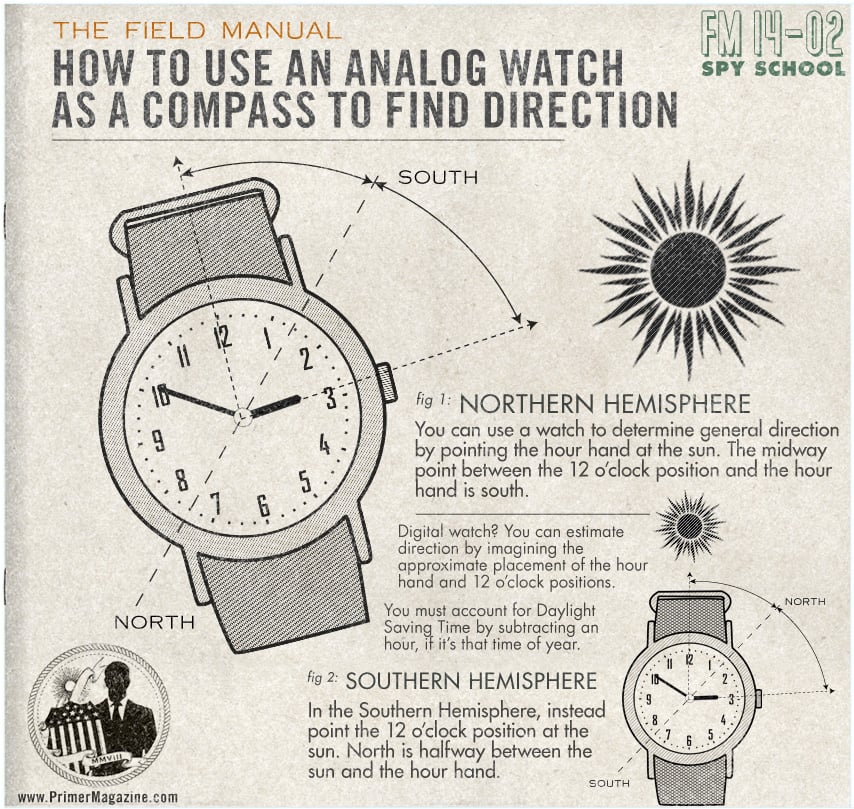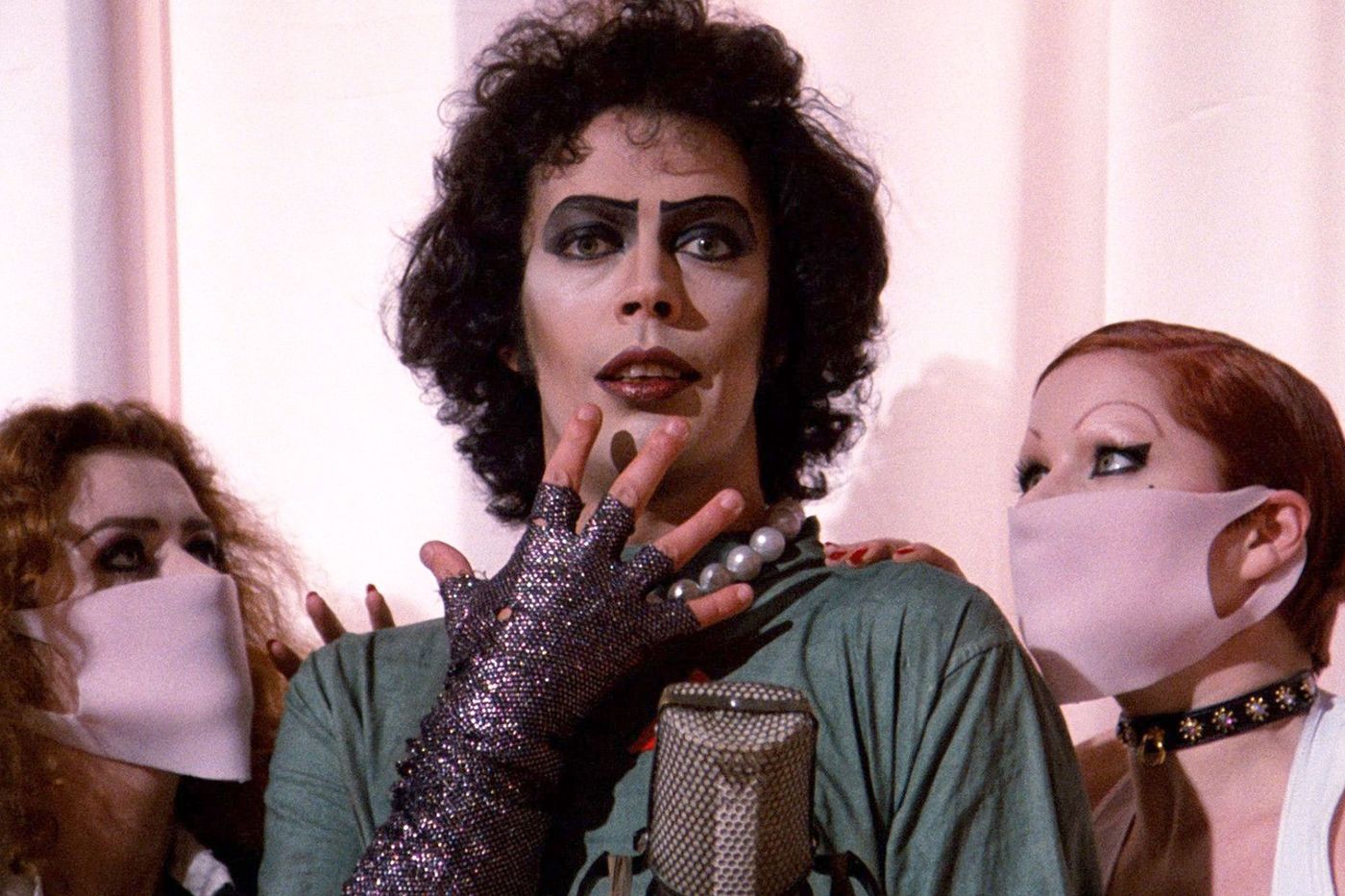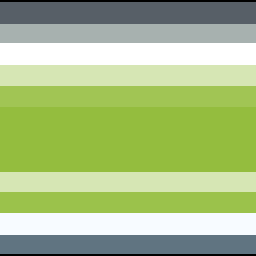I’ve worked in 2 different schools in the IT department and 4 others as a volunteer lecturer (I got a name tag that said Technology Evangelist) I found that putting an analog clock in the screen saved of computers in the classroom was more likely to result in the clock actually being on time.
Too many clocks in classrooms are very old or even battery powered but neglected.
I don’t think kids are dumb just they aren’t getting a world that is properly maintained by competent people that care about their work and are adequately resourced to do the whole job.
deleted by creator
Well, in Germany… depending on the school and people, we cared a lot for those clocks and maintained them well
Real talk, is there some benefit to an analog clock that would prevent them from all being replaced by digital ones? Being able to know exactly the time in a moment’s glance seems better to me.
They’re certainly not better looking than a digital one, considering most of the ones used in schools are just the cheapest and most basic version they can get.
Power requirements maybe? Longevity?
Genuine question, how precise do you need the time to be? Maybe you actually need precise readings for something. I figured that “on the 5 min marker”, “slightly before/behind the 5 min marker” and “in the middle of two 5 min markers” is precise enough for me. And I I see a hand at these positions faster than reading numbers.
I think for precise readings (eg. entering the time I start working), the speed is the same for me, but obviously I didn’t test this.
I also think looking at the time but then still not knowing what time it is happens less on an analog clock.
I don’t know how much personal preference influences this though.
Being able to know exactly the time in a moment’s glance seems better to me.
That seems more like a pro for analogue to me. It’s much easier with an analogue clock since you get a visual presentation of time. Whenever someone tells me a time, I have to first imagine an analogue clock to understand what that time means.
Honestly that’s just about being used to one versus the other. For me it’s basically the other way around
An analog clock is just three sets of loading bars with their ends glued together. You can tell geometrically what proportion of each division of time (day, hour, and minute) are spent and what proportion remains. You don’t even need the numbers.
If you need stopwatch-level precision, sure, a digital display is superior. But how often do you need that? Most of what I need clocks for is, “Oh, it’s about a quarter to noon, I have a lunch appointment to get to”.
It is my personal preference to visually intuit that the clock hands are roughly separating the hour into 3/4 spent and 1/4 remaining and use that to know how much time I have left to the hour, rather than read the symbols “42” on the display and manually do the mental gymnastics of “well that’s basically 45, which is three quarters of the way to 60 minutes”.
I’ll admit this benefit is marginal.
I think that’s an interesting way to look at it. I find it easier to do the mental gymnastics, as you call it.
It proves to be somewhat useful as an example when trying to teach fractions and decimals, something we are absolutely terrible at teaching. Incomprehension of fraction to decimal conversion is why 90% of people who say they are bad at math, say they are bad at math.
Teaching someone how to read a clock for the sole purpose of using it as a math example seems like a poor use of effort.
I wouldn’t say that’s the sole purpose, just an additional purpose to being able to tell time. It’s also useful if the kid wants to be a pilot.
So what are the purposes? Nobody uses analog clocks anymore so afaict:
- To teach fractions
- Something to do with being a pilot???
What am I missing? 😛
Clockwise, counter clockwise. Classic time shorthand (IE, half past ten, quarter to eleven). Time estimations (easy to see a half minute on a analog clock, digital just goes from 2:00 to 2:01)
I think analog clock displays are more elegant, and are overall nicer than digital. Personal preference though.
Incomprehension of fraction to decimal conversion is why 90% of people who say they are bad at math, say they are bad at math
I feel called out. I was in high-school Calculus (11th grade) before I “truly” understood fractions. Like, I honestly somehow managed to make it to Calculus without knowing how to add and subtract fractions without a calculator. Thought I was dumb in math until 9th grade algebra, and didn’t start becoming a bit of a math nerd until Calculus
They convey time instantly, without reading. You don’t even need the numbers for them to work. It’s like showing a progress bar versus just giving the percentage as a number.
It helps give people a geometrical understanding of the cyclic nature of time.
Lol I don’t think that’s true, and I don’t think those words work the way you used them anyway
Sounds like you just didn’t understand. Each hour of the 12 on the clock takes up 30° of the circle, and we measure time in cycles of hours, minutes, seconds that all match up well with the 360° of a circle.
Cutting pizza would also teach kids a geometrical understanding of how circles work, I don’t see how that translates at all to being innate to reading a clock. I know tons of people who can read a clock who suck at math. It seems like an incredibly weak assertion.
Making any excuse to not learn how analog clocks work is what’s really a weak assertion. It’s not that fucking hard.
You can use them as a crude compass next time you find yourself unexpectedly in the wilderness.

Can’t do that with a digital display, can you?
It literally says on the image you sent how to do it with a digital display (besides, it’s pretty reasonable)
Not if you can’t imagine analogue clock.
Their method is “imagine a clock face showing that hour” how are you going to do that if you don’t know how analogue clocks work?
I prefer analogue clocks because I tend to have time blindness with ADHD, and it’s easier to see at a glance how much time is visually left in an hour or how much time is passing with an analogue clock. Just knowing that “15 min left” isn’t really as effective as being able to see a visual representation of “15 min left”, for example.
This would be gen alpha at this point no?
Sounds like a fake article
There’s probably someplace kids could go to learn about analog clocks…
A flavorflav concert?
As if they teach us how to read those clocks anyways
Ugh kids these days can’t even prime a Magneto What’s next morse code!?!
So, schools aren’t even capable of teaching students how to read clocks anymore?
They are creating more and more idiots out there. The trend of “Help, our students don’t understand xyz, let’s stop teaching that immediately!” is disgusting. Maybe think of teaching it in a different way or just spending more time on that topic?
Schools have more important things to teach kids with the limited time they have
No, screw that whataboutism. When I went to school, I learned so much information that is virtually useless to most people, and not nearly enough skills and knowledge that would actually be helpful in daily life. I would like to see the situation improve for future generations.
Analogue clocks are everywhere and being able to read them is still important. Besides, if schools aren’t even capable of teaching something so simple to students, I think that calls into question their ability to teach far more complex things.
It’s because analog clocks are becoming obsolete. You can scream about the young peoples all you want but that’s the reality.
I’m not screaming about the young people; I was “the young people” not that long ago. Not everyone who criticizes education is an out of touch boomer resisting every societal change.
Actually, analogue clocks have been obsoleted in almost every way by digital clocks for at least half a century, as digital wristwatches first hit the market in the 1970s. And yet, analogue clocks are still found everywhere. Classes, stores, train stations, homes, offices, not to mention the majority of wristwatches, still mostly use analogue clocks. In fact, excluding screens, I wouldn’t be surprised if most people came across more analogue clocks than digital clocks on a daily basis. They’re technologically obsolete, but haven’t fallen out of use.
Sorry I just assumed this was more boomer shitting on the youngins like usual so that’s my bad.
I have to have an analog clock within sight in the morning. When I first wake up I’m too tired and bleary eyed to think about numbers but I know what angle the minute hand will be at when I have leave to catch the bus to work. When you’re familiar with an analog clock it’s far more user friendly than looking at some numbers and have to do some math. Sure it’s simple math, but first thing in the morning, I’d rather just glance at the minute hand and when I see the angle I just know.
So I don’t think it’s not going away despite it being obsolete, it’s not going away because it’s more user friendly. Sure there’s a learning curve, but once you’ve gotten the hang of it, it’s a more efficient way for a human to get a sense of time, which in many cases is more important than having a numerical representation of time.
Perhaps the fact that we pay them like 30 grand a year is a factor? That’s how much my one bedroom apartment costs 😂 there’s no money left over for food or loans or electricity or gas
Financial stress has been proven to make you dumber
We also need to teach them how to write in cursive so they can read the declaration of independence.
How is that whataboutism?
It’s not that schools have become unable to teach kids to read analog clocks or kids have become unable to learn it. It’s not that they can’t it’s that they don’t
But speaking of whataboutism, your argument is literally “well what about all the useless stuff that I learned in school???”
How about they stop teaching useless stuff, and the first things they can throw out are cursive and analog clocks.
10:10:37
Fun fact, 10:10 is the default time most photographers take photos of a clock/watch to help display all the logos and things a watch face has to offer!
Fun fact number 2: because of this tradition, even digital clocks are sometimes shown as 10:10
Wife, for years, thought the “second hand” on a clock was called that because it was the “2nd” hand on the clock…which confused her. Took her over 30 years to realize it’s the “seconds” hand because it counts seconds.
I guess she is not entirely off, either. It’s called that because it is the second division of an hour.
It floors me just how many people in this thread feel like analog clock reading is a useless/outdated skill.
But I’m of the opinion that there’s no such thing as a truly outdated and useless skill, so I’m not sure I have the capability to empathize with those people…
As a person who prefers analog clocks I disagree
What benefit does analog bring over digital other than nostalgia?
Once is objectively faster to read granularly, by the minuteI perceive remaining time much better with an analogue clock. It’s also why I perceive time in fractions. I think it’s the superior clock, and people should probably learn to fucking read one since they’re everywhere.
I also think it’s kind of insane that we’re not at least learning how to read cursive in schools anymore. There are countless documents written in English that English speakers will not be able to properly decipher.
To be fair i learnt cursive and i can still not decipher most of it, even my own writing (or rather especially my own writing)
It’s not useless.
It’s just less useful that other things that should be taught in school. There is only so much time in a school year, and it shouldn’t replace those more useful things in the curriculum.
Yeah let’s teach them about credit and healthcare
You fool! I use 24H time, which requires analogue, or a really cluttered clock face. THIS is the signature look of superiority.
But it looks cluttered, as previously mentioned. No way to make a circle fit more radians in the same space, unless… God, my head hurts already.
Your life has to be extremely messy, to not just know which part of the day you are in. For knowing what time it is, 24h is unneccesary. For communicating time it makes sense.
THIS IS NOT THE SIGNATURE LOOK OF SUPERIORITY I MEANT DIGITAL CLOCK THE GODS BE FUCKING DAMNED I’M SO EEPY AND I WANT TO DIE BY EEPING FOREVER SKULL EMOJIIIIIIIIIII
HOW CAN I BE SO BRAZEN THE WALTER BREAKING BAD WHITE GIF DOESN’T EVEN EMBED PROPERLY 😭😭😭😭😭
Do you mean digital?
Not sure if true or clickbait, but if true it means we’ll eventually lose clockwise and counter-clockwise as descriptive references.
Righty tighty lefty loosey
Which today just reminds you that left handed women have lower standards for casual sex. Nobody remembers its origins in manual tool usage.
Bring back widdershins!
Or the phrases stick around and people in the future just wonder what a clock has to do with rotation.
Likely this.
Yep. Like uppercase and lowercase letters. Cause back when type was metal the uppercase letters were in the upper case. And the lowercase letters were in the lower drawers.
Turnwise and widdershins
Ook?
I know, it’s just a meme, but… The article. It’s about clocks during exams specifically, when students are under pressure and more likely to misread the time on an analogue clock.
IMO all the more reason to keep them. In the real world we all have to perform under pressure. With practice they can learn to read the clock under pressure, maybe take a breath or two and slow down before trying to read it. It may be a simple hurdle to overcome but practicing overcoming these things is important for development.
You on the other perform excellent in being abrasive, despite social pressure not to be an asshole.
10/10 no notes.
Lol that dude was not being an asshole. Getting a little defensive?
You’re right it’s good to prepare young people for challenges. Still, that should mean challenges that would come up anyways, not artificially making things more difficult.
It’s good to know how to read an analog clock, just like it’s good to be able to read cursive. But both of them are outdated and aren’t inherently required in day to day life. Inserting them into a testing situation that’s meant to test something else is creating an unnecessary challenge.
Not to mention the amount of analog clocks that are just wrong. I work at a fortune 500 company, most clocks are digital and synced to a time server. Every analog clock is wrong. Just yesterday I walked through the cafeteria and glanced at the clock and it read 5:20… For a second I panicked and was like it can’t be that late. I checked my phone, it was 3:06. The clock was just not set properly.
There are radio controlled clocks which theoretically shouldn’t be wrong. At least as long as there isn’t a battery or motor issue…
How do you tell whether you’re looking at a radio-controlled clock though?
How would you tell you’re looking at a synchronized digital clock or cheap battery model?
Sometimes they have it written on the clockface. I don’t think that’s a general rule though.
In the same way there are digital clocks that can be wrong too though.
There are tons of equipment and tools out there that very closely resemble an analog clock and require the same skills. Pressure gauges for example. These skills are not out dated.
Except, a pressure gage reads the number it’s pointing at. Not 1 hand means the number it’s pointing at and the other means 5 times the most recent digit passed plus 1 for each tick mark.
I’d wager that most people would never even see a pressure gage with two hands. Dual-indicating double-bourdon tube differential pressure gages are quite rare in the real world. Usually for that kind of application you’d go digital.
Thanks for expounding upon that. It’s shit like this that gets spread around and older gens pat themselves on the back while shaking their head at the younger gen for not knowing something, despite it being taken out of context or even straight up false.
You’re right, but the article still has a shitty, clickbait-y headline.
To be honest, even if it were completely true… okay? If analogue clocks are on the way out then there’s no particular need for anyone to be able to read them any more. I like them a lot visually and have a couple in my home, but there’s nothing so special about them that people would be missing out by using digital clocks instead
Well, there sort of is https://youtu.be/NeopkvAP-ag?si=eWRyU6pjV71_ag8N
With all due respect this is literally just a guy saying that he’s personally better at reading analogue clocks than digital ones for 18 minutes
I mean that’s kind of the point, right? They convey the information in a different way that’s easy to understand for some people which seems pretty relevant since conveying information is the only function of a clock. Probably the ideal solution would be to just have both in classrooms
I immediately thought of Technology connections based on that description. I didn’t even remember he did a video on clocks.
Kids cant ask the teacher for the time?
At my school, because the clock was always between 2 and 10 minutes wrong, the students(mostly me) would just raise their hands and ask how much time they have left
they could ask the teacher, sure, but why not fix the problem instead of using a disruptive workaround until the end of time? phrased another way, should we as a society fix problems or provide half solutions that don’t fully resolve them?
I wrote the reply before reading the article so i didnt think of digital clocks being the alternative(i also never seen a digital clock in real life excluding smart devices)
Also, i was referencing the part of the comment that said that kids were misreading the time(do kids rely on analog clocks that may be wrong during tests?) , not saying that the problem shouldnt be fixed
Analog clocks are kind of annoying tbh. Sometimes you need that little extra energy you have to spend on wondering whether it is 11:37 or 11:38 already by carefully visually bisecting the circle section between 7 and 8.
Millimetres of white space keep you wondering about the nature of analogue vs digital and measurement uncertainty while you have better things to do but cannot just give up on OCDing whether it is exactly 11:37:30 already or maybe it is 11:37:35? And boom in these seconds you were wondering it is already pointless because the past moved to present and now it is time to wonder if it is 11:38:15 or 11:38:30Whereas for digital it is just: oh it is 11:11 on 11.11.11 how cool
seconds hand: am I a joke to you?
Most clocks have only two hands. Actually all school clocks I seen had only two
There’s a huge difference between “most clocks” and “most clocks I’ve seen” - especially if your clock experience is restricted to schools.
Do you see a lot of schools? Do you know whether the schools you’ve been to all use the same supplier? How broad is your school clock experience? How many clocks do you think you’ve seen, ever?
Most clocks I’ve seen recently (I can recall exactly 1) have seconds hands. Regardless though I’m not suggesting “most clocks” have seconds hands…I’m just making a quip about how traditional, analogue, clocks have seconds hands to deal with the exact problems noted.
And yet in schools they don’t have seconds. Never had
I still have ptsd thanks to that. Can you imagine? No seconds?
This is pure torture that should be forbidden by Geneva convention. So uncivilised
I cannot fathom such deep despair for I only live in a world of seconds.
God speed my simple friend. God speed.
The specific time isn’t as important as how long it is until things are going down. You know the part of the clock the minute hand will be pointing at when it’s time to do shit then you got a handy little progress arc to check in on and instantly know when it’s time to do the things.
So you say that your bowel movements are synchronised with your clock?
Kinda. Finishing my coffee is synchronized with the clock. I take a shit soon after that.
I read both kinds of clocks differently and have to sit and process to translate between them. A digital clock I read as “six twenty-five AM.” An analog clock I read as “almost half-past six.” I usually don’t bother reading an analog clock at greater resolutions than a quarter hour.
No.
I love having an analog clock. It makes it feel like you have more time compared to a digital clock, making me more relaxed. For example, if the time is 12:34 PM, my subconscious will think, “Ahh, shit, 26 more minutes before 1 PM.” But with an analog clock, I read it as around half an hour before 1 PM. The visual representation also helps, like seeing that there is a distance that the hands need to travel to reach a certain time.
All in all, I very much prefer having analog clocks vs digital when given the chance.


















